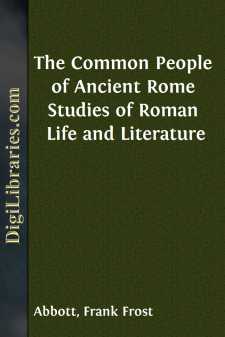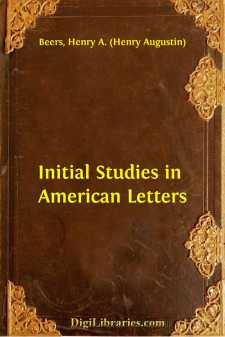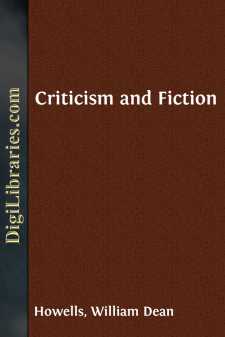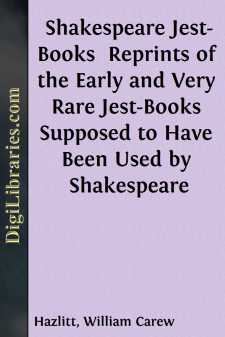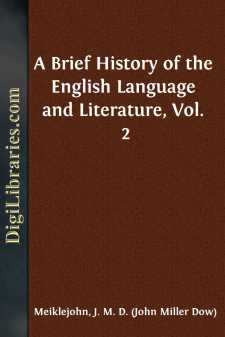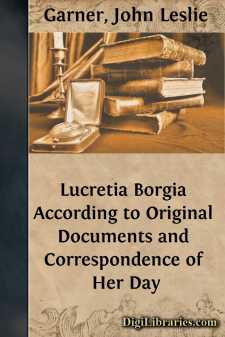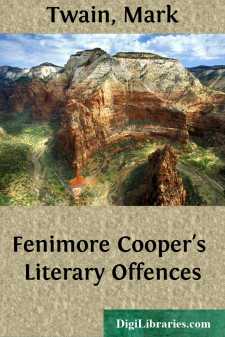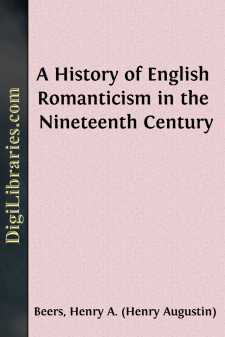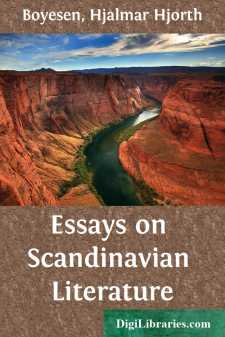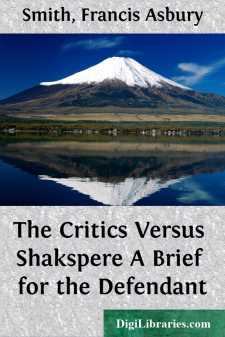Literary Criticism
- American 18
- Ancient and Classical 3
- Asian 1
- Australian & Oceanian 1
- Books & Reading 8
- Caribbean & Latin American 2
- Drama 2
- English, Irish, Scottish, Welsh 49
- European 7
- General 37
- Horror 1
- Humor 2
- Jewish 2
- Medieval 2
- Middle Eastern 3
- Poetry 7
- Renaissance 6
- Russian & Former Soviet Union 1
- Shakespeare 27
Literary Criticism Books
Sort by:
How Latin Became the Language of the World How the armies of Rome mastered the nations of the world is known to every reader of history, but the story of the conquest by Latin of the languages of the world is vague in the minds of most of us. If we should ask ourselves how it came about, we should probably think of the world-wide supremacy of Latin as a natural result of the world-wide supremacy of the...
more...
CHAPTER I. THE COLONIAL PERIOD. 1607-1765. The writings of our colonial era have a much greater importance as history than as literature. It would be unfair to judge of the intellectual vigor of the English colonists in America by the books that they wrote; those "stern men with empires in their brains" had more pressing work to do than the making of books. The first settlers, indeed, were...
more...
The question of a final criterion for the appreciation of art is one that perpetually recurs to those interested in any sort of aesthetic endeavor. Mr. John Addington Symonds, in a chapter of 'The Renaissance in Italy' treating of the Bolognese school of painting, which once had so great cry, and was vaunted the supreme exemplar of the grand style, but which he now believes fallen into...
more...
INTRODUCTION. When a small impression of these quaint old books issued from the Chiswick Press, many years ago, under the auspices of the late Mr. S. W. Singer, that gentleman merely designed the copies struck off for presentation to a select circle of literary friends who, like himself, felt a warm interest in every relic of the past which helped to illustrate Shakespeare and ancient English manners....
more...
INTRODUCTION. 1. Tongue, Speech, Language.—We speak of the “English tongue” or of the “French language”; and we say of two nations that they “do not understand each other’s speech.” The existence of these three words—speech, tongue, language—proves to us that a language is something spoken,—that it is a number of sounds; and that the writing or printing of it upon paper is a quite...
more...
INTRODUCTION Lucretia Borgia is the most unfortunate woman in modern history. Is this because she was guilty of the most hideous crimes, or is it simply because she has been unjustly condemned by the world to bear its curse? The question has never been answered. Mankind is ever ready to discover the personification of human virtues and human vices in certain typical characters found in history and...
more...
by:
Mark Twain
It seems to me that it was far from right for the Professor of English Literature in Yale, the Professor of English Literature in Columbia, and Wilkie Collins to deliver opinions on Cooper's literature without having read some of it. It would have been much more decorous to keep silent and let persons talk who have read Cooper. Cooper's art has some defects. In one place in...
more...
CHAPTER I. Walter Scott.[1] It was reserved for Walter Scott, "the Ariosto of the North," "the historiographer royal of feudalism," to accomplish the task which his eighteenth-century forerunners had essayed in vain. He possessed the true enchanter's wand, the historic imagination. With this in his hand, he raised the dead past to life, made it once more conceivable, made it even...
more...
BJÖRNSTJERNE BJÖRNSON I Björnstjerne Björnson is the first Norwegian poet who can in any sense be called national. The national genius, with its limitations as well as its virtues, has found its living embodiment in him. Whenever he opens his mouth it is as if the nation itself were speaking. If he writes a little song, hardly a year elapses before its phrases have passed into the common speech of...
more...
Many years ago, I was retained in the great case of The Critics against Shakspere, the most celebrated on the calendar of history during three centuries. Unlike other cases, it has been repeatedly decided, and as often reopened and reheard before the most eminent judges, who have again and again non-suited the plaintiffs. Appeals have availed nothing to reverse those decisions. New actions have been...
more...


